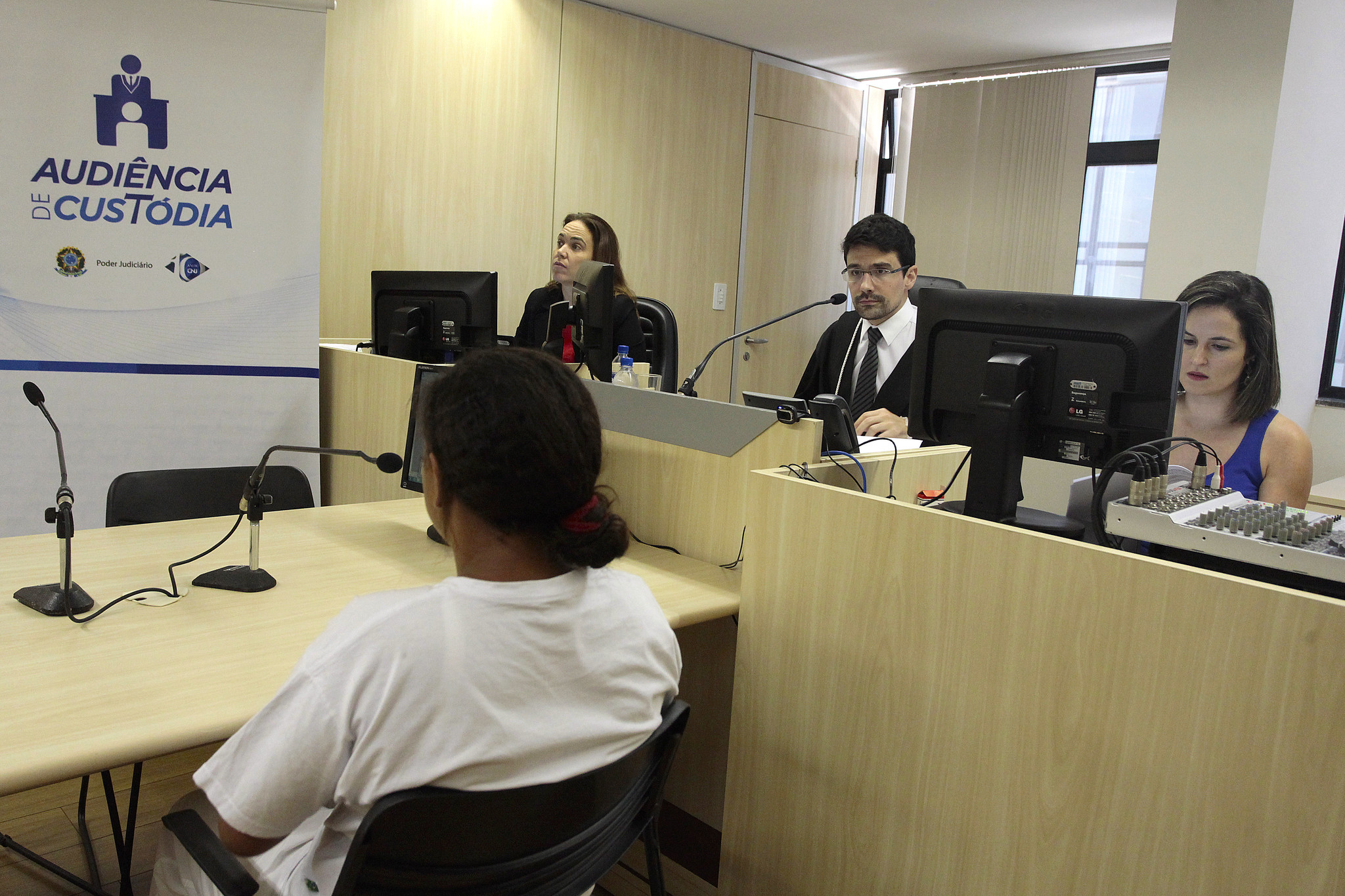Supreme Court suspends vote on overturning of in-person custody hearings
Injunction by Justice Nunes Marques paves the way for states to implement virtual hearings; organizations allege difficulty identifying signs of torture
 Audiência de Custódia - TJDFT. Foto: Luiz Silveira/Agência CNJ
Audiência de Custódia - TJDFT. Foto: Luiz Silveira/Agência CNJ
Updated on 07/05/2021
Following the request for an adjournment by Justice Gilmar Mendes, the Supreme Court suspended on Thursday, July 1, in a virtual session, its judgment of the injunction granted on Monday, June 28, by Justice Nunes Marques that dispenses with the need for state governments to hold in-person pre-trial custody hearings. No date has been set, but the case will now have to be judged by an in-person session of the court.
The injunction was granted in response to the Direct Action of Unconstitutionality No. 6841 filed by the AMB (Association of Brazilian Judges). The association is challenging the decision of the National Congress to overturn a veto of the passage of the Anti-Crime Bill that bans custody hearings from being held virtually.
Read more
Custody hearings must be held within 24 hours of arrest, serving to determine the legality of the detention and to identify any signs of torture and mistreatment suffered by the arrested person, especially by the police.
Also read
- Justice by video suppresses complaints of torture, organizations tell IACHR
- Congress reinstates mandatory in-person custody hearings
“Hearings by video conference do not permit judges to identify these signs of mistreatment and they deter the arrested person from reporting the violence suffered,” said Carolina Diniz, an advisor for the Institutional Violence program at Conectas. “In most cases, the hearing is held inside the police stations and in the presence of the police officers who committed the abuse. Even when questioned by the judge, the person will not feel safe enough to make a complaint,” she said.
According to the CNJ (National Justice Council), there was an 84% reduction in the detection of torture and mistreatment after the suspension of in-person custody hearings due to the pandemic, between March and May 2020.
“It is unreasonable to argue that the hearings cannot be held in-person for health reasons. It is entirely possible to use Covid-19 protection measures given the need to curb police violence,” concluded Diniz.
Together with IDDD (Defense of the Right to a Defense Institute), ITTC (Land, Labor and Citizenship Institute), ProBono Institute, APT (Association for the Prevention of Torture), GAJOP (Office of Legal Counsel to Grassroots Organizations) and the National Decarceration Agenda, Conectas filed a request for amicus curiae status in this case.
On Wednesday, June 30, civil society representatives participated in a hearing at the IACHR (Inter-American Commission on Human Rights) to discuss the effects of so-called virtual justice on the right to a legal defense and on the physical integrity of persons deprived of liberty in the region.






